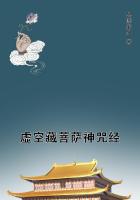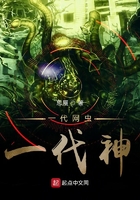I remember that when they first found it I had thought of Paley, and how he tells us that a savage on seeing a watch would at once conclude that it was designed. True, these people were not savages, but I none the less felt sure that this was the conclusion they would arrive at; and I was thinking what a wonderfully wise man Archbishop Paley must have been, when I was aroused by a look of horror and dismay upon the face of the magistrate, a look which conveyed to me the impression that he regarded my watch not as having been designed, but rather as the designer of himself and of the universe; or as at any rate one of the great first causes of all things.
Then it struck me that this view was quite as likely to be taken as the other by a people who had no experience of European civilisation, and I was a little piqued with Paley for having led me so much astray; but I soon discovered that I had misinterpreted the expression on the magistrate's face, and that it was one not of fear, but hatred. He spoke to me solemnly and sternly for two or three minutes. Then, reflecting that this was of no use, he caused me to be conducted through several passages into a large room, which I afterwards found was the museum of the town, and wherein Ibeheld a sight which astonished me more than anything that I had yet seen.
It was filled with cases containing all manner of curiosities--such as skeletons, stuffed birds and animals, carvings in stone (whereof I saw several that were like those on the saddle, only smaller), but the greater part of the room was occupied by broken machinery of all descriptions. The larger specimens had a case to themselves, and tickets with writing on them in a character which Icould not understand. There were fragments of steam engines, all broken and rusted; among them I saw a cylinder and piston, a broken fly-wheel, and part of a crank, which was laid on the ground by their side. Again, there was a very old carriage whose wheels in spite of rust and decay, I could see, had been designed originally for iron rails. Indeed, there were fragments of a great many of our own most advanced inventions; but they seemed all to be several hundred years old, and to be placed where they were, not for instruction, but curiosity. As I said before, all were marred and broken.
We passed many cases, and at last came to one in which there were several clocks and two or three old watches. Here the magistrate stopped, and opening the case began comparing my watch with the others. The design was different, but the thing was clearly the same. On this he turned to me and made me a speech in a severe and injured tone of voice, pointing repeatedly to the watches in the case, and to my own; neither did he seem in the least appeased until I made signs to him that he had better take my watch and put it with the others. This had some effect in calming him. I said in English (trusting to tone and manner to convey my meaning) that I was exceedingly sorry if I had been found to have anything contraband in my possession; that I had had no intention of evading the ordinary tolls, and that I would gladly forfeit the watch if my doing so would atone for an unintentional violation of the law. He began presently to relent, and spoke to me in a kinder manner. Ithink he saw that I had offended without knowledge; but I believe the chief thing that brought him round was my not seeming to be afraid of him, although I was quite respectful; this, and my having light hair and complexion, on which he had remarked previously by signs, as every one else had done.
I afterwards found that it was reckoned a very great merit to have fair hair, this being a thing of the rarest possible occurrence, and greatly admired and envied in all who were possessed of it.
However that might be, my watch was taken from me; but our peace was made, and I was conducted back to the room where I had been examined. The magistrate then made me another speech, whereon Iwas taken to a building hard by, which I soon discovered to be the common prison of the town, but in which an apartment was assigned me separate from the other prisoners. The room contained a bed, table, and chairs, also a fireplace and a washing-stand. There was another door, which opened on to a balcony, with a flight of steps descending into a walled garden of some size. The man who conducted me into this room made signs to me that I might go down and walk in the garden whenever I pleased, and intimated that Ishould shortly have something brought me to eat. I was allowed to retain my blankets, and the few things which I had wrapped inside them, but it was plain that I was to consider myself a prisoner--for how long a period I could not by any means determine. He then left me alone.















